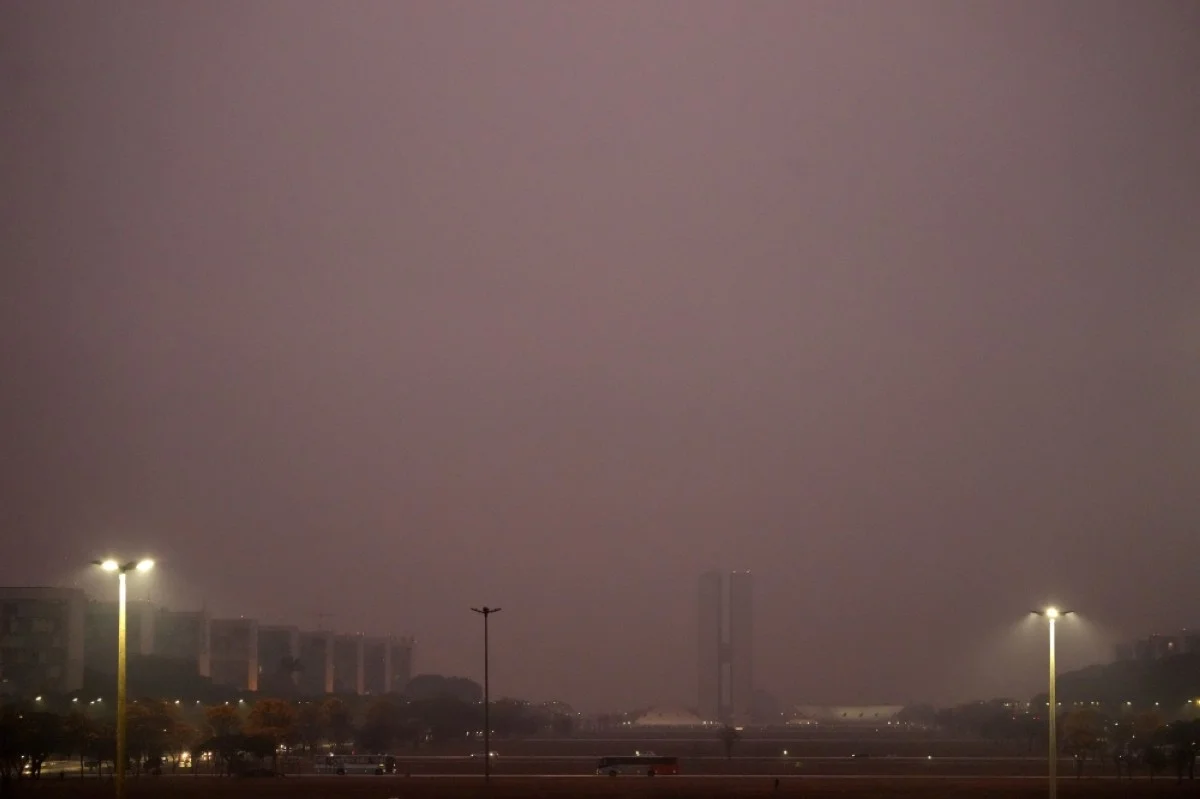29/08/2024
29/08/2024

MANAUS, Brazil, Aug 29, (AP): Smoke from wildfires in Brazil's Amazon rainforest Wednesday was causing people in the region to cough, burning their throats and reddening their eyes. Large swaths of the country have been draped in smoke in recent days, resulting from fires raging across the Amazon, Cerrado savannah, Pantanal wetland and the state of Sao Paulo.
Residents are feeling the sting, including Fátima Silva, a 60-year-old farmer in the Amazonian town of Labrea. "I am not well. I am feeling short of breath, my throat hurts, my eyes need eye drops, I can’t go out on the street, I can’t go anywhere because everything is white with smoke,” Silva told The Associated Press in a voice note, adding that her grandchildren are coughing so much they can hardly sleep. "My grandchildren, my children, everyone is getting sick.
Today it got even worse. No one can stand it,” she said. Fires are traditionally used for deforestation and for managing pastures, and those man-made blazes are largely responsible for igniting the wildfires. In the Amazon, there have been 53,620 fire spots between Jan. 1 and Aug. 27, an 83% increase from the same period last year, according to the National Institute for Space Research, a federal agency.
Across the Amazon, many areas were classified as having "very bad” or "terrible” air pollution Wednesday, according to the the State University of Amazonas' environmental monitoring system. In cases of wildfires and due to the resulting smoke, Amazonas state's civil defense authority has recommended staying hydrated and remaining indoors.
But street vendors, garbage collectors, crossing guards and other workers have to be out and about. That means they can’t avoid the smoke. Even worse, because they have to work harder to breathe in those conditions they inhale more of the dangerous particles into their lungs, according to Jesem Orellana, a resident of Manaus, the biggest city in the Amazon, and an epidemiologist and researcher at the state-run Fiocruz Institute.


